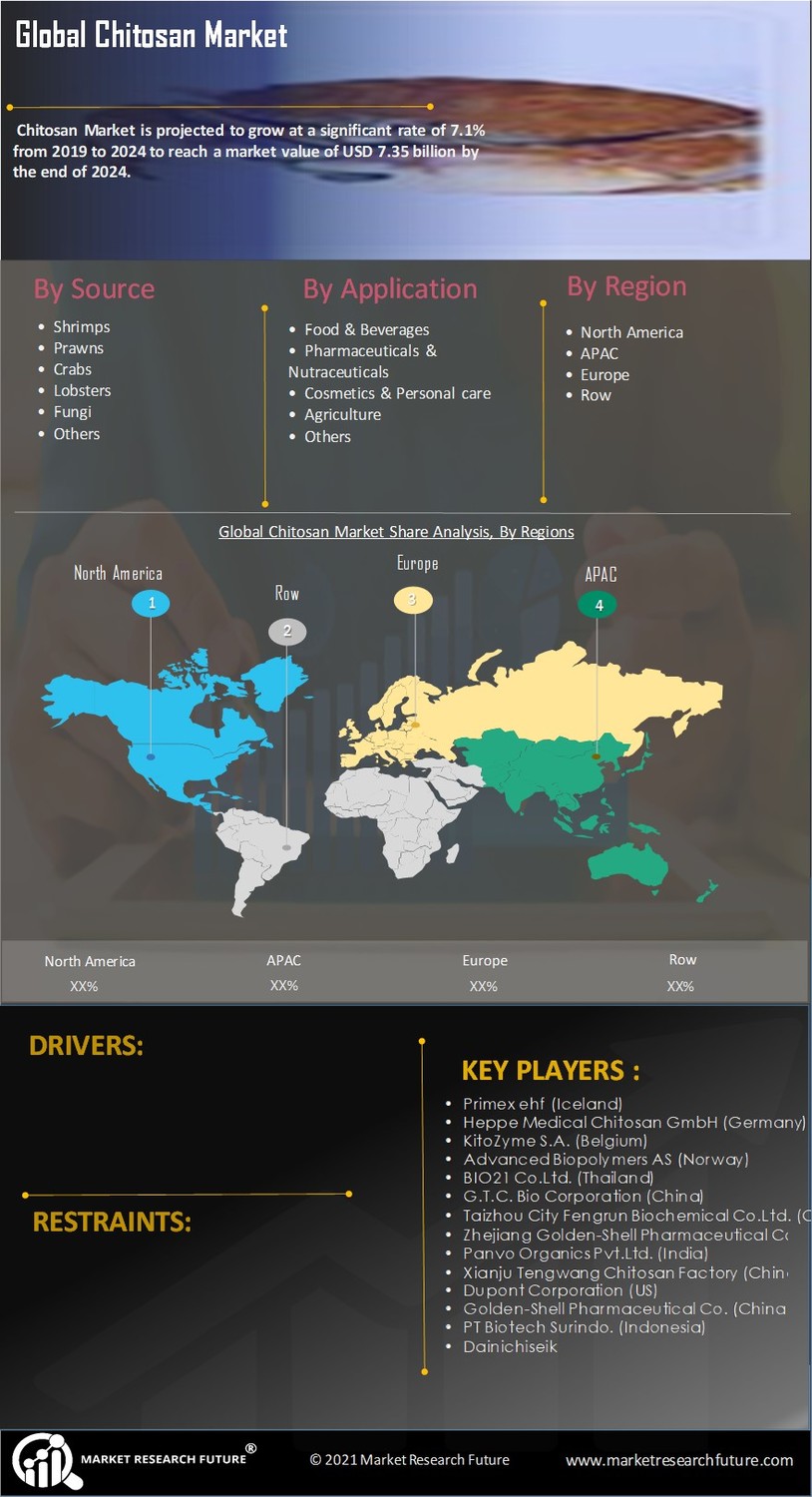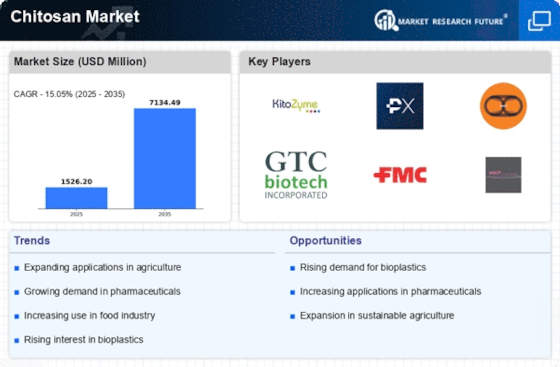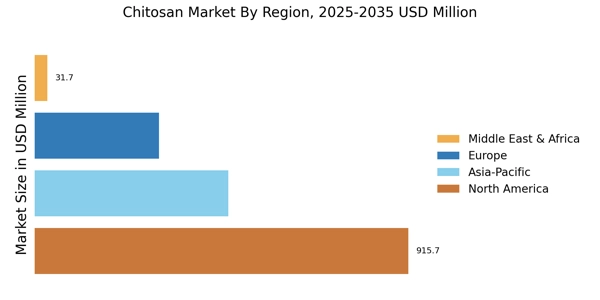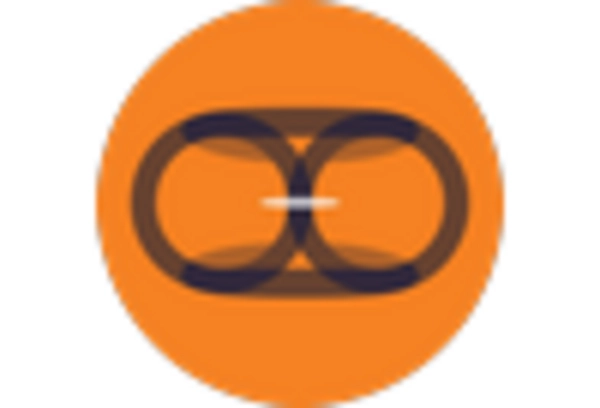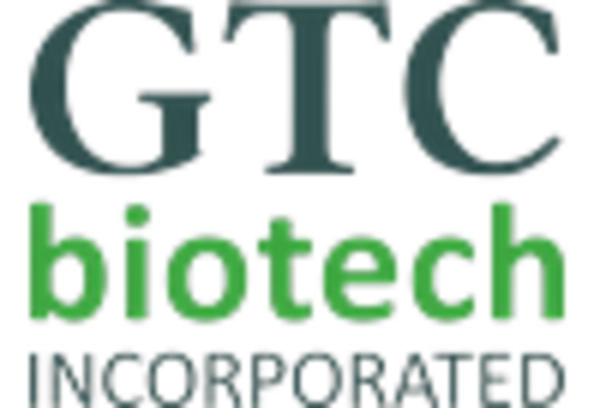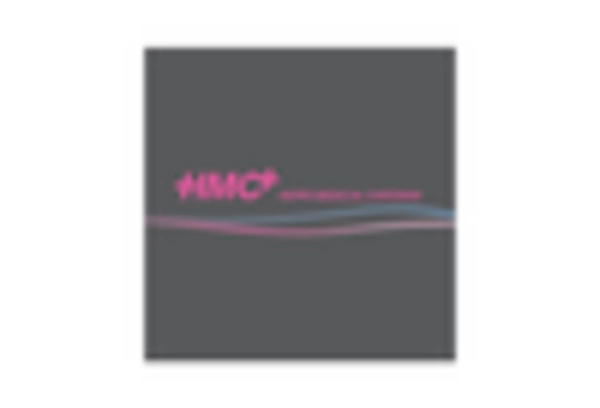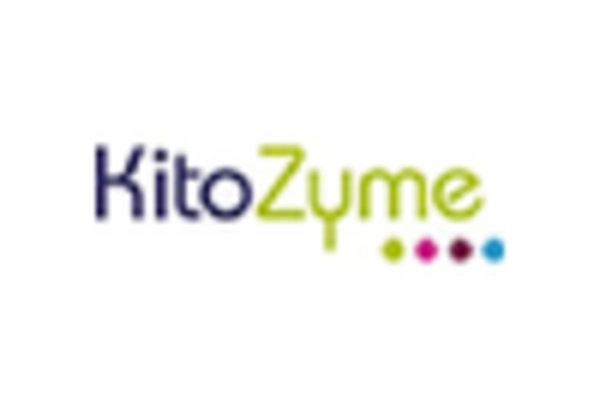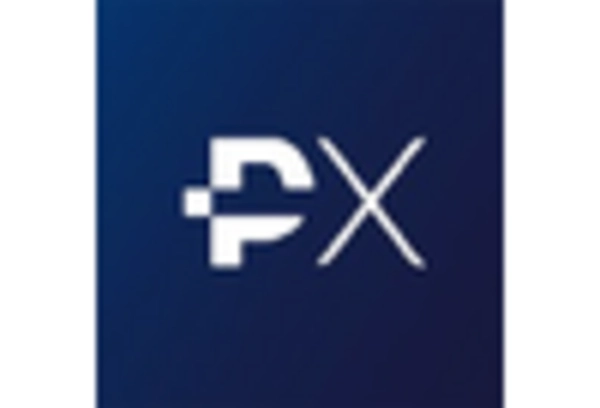Growth in Food Preservation
The chitosan Market is witnessing a surge in demand for food preservation applications. Chitosan Market's natural antimicrobial properties make it an effective agent for extending the shelf life of various food products. Recent data suggests that the use of chitosan in food packaging and preservation could reduce spoilage rates by up to 30%, which is particularly beneficial in regions with limited access to refrigeration. As consumers increasingly seek natural and safe food preservation methods, the market for chitosan in the food industry is expected to expand significantly. This trend aligns with the broader movement towards clean label products, where consumers prefer ingredients that are recognizable and derived from natural sources, further enhancing the appeal of the Chitosan Market.
Increasing Demand in Agriculture
The Chitosan Market is benefiting from the rising demand for sustainable agricultural practices. Chitosan Market is utilized as a biopesticide and soil conditioner, promoting plant growth and enhancing crop yield. Recent reports indicate that the global market for chitosan in agriculture is anticipated to reach USD 1 billion by 2026, driven by the need for eco-friendly alternatives to chemical pesticides. The application of chitosan not only helps in pest control but also improves soil health, which is crucial for sustainable farming. As agricultural stakeholders increasingly prioritize sustainability, the adoption of chitosan-based products is likely to gain momentum, thereby propelling the Chitosan Market forward.
Advancements in Cosmetic Applications
The Chitosan Market is experiencing growth due to advancements in cosmetic applications. Chitosan Market is recognized for its moisturizing and film-forming properties, making it a valuable ingredient in skincare and haircare products. The Chitosan Market is projected to grow significantly, with natural and organic products gaining traction among consumers. Chitosan Market's ability to enhance product efficacy while being derived from natural sources aligns with consumer preferences for clean beauty. Recent estimates suggest that the incorporation of chitosan in cosmetic formulations could lead to a market expansion of approximately 10% annually. This trend indicates a promising future for the Chitosan Market as it adapts to evolving consumer demands.
Rising Applications in Pharmaceuticals
The Chitosan Market is experiencing a notable increase in demand due to its diverse applications in the pharmaceutical sector. Chitosan Market, derived from chitin, is recognized for its biocompatibility and biodegradability, making it an attractive option for drug delivery systems. Recent studies indicate that the global market for chitosan in pharmaceuticals is projected to grow at a compound annual growth rate of approximately 15% over the next five years. This growth is driven by the rising need for effective drug formulations and the increasing prevalence of chronic diseases. Furthermore, the ability of chitosan to enhance the solubility and bioavailability of drugs positions it as a key player in the pharmaceutical landscape, thereby bolstering the overall Chitosan Market.
Regulatory Support for Biodegradable Materials
The Chitosan Market is poised for growth due to increasing regulatory support for biodegradable materials. Governments worldwide are implementing policies aimed at reducing plastic waste and promoting sustainable alternatives. Chitosan Market, being a biodegradable polymer, aligns with these regulatory frameworks, making it an attractive option for various applications, including packaging and textiles. Recent legislative measures have encouraged the use of biodegradable materials, which could potentially increase the market share of chitosan-based products. As industries seek to comply with environmental regulations, the Chitosan Market is likely to benefit from this shift towards sustainability, positioning itself as a key player in the transition to eco-friendly materials.
